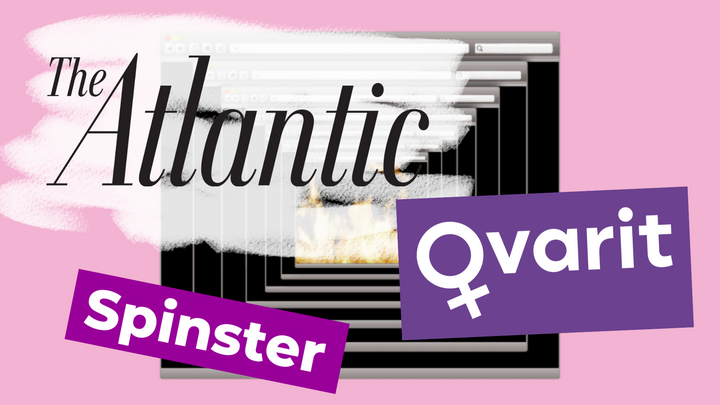Women Need to Believe Women, Too
Just because it didn’t happen to you, doesn’t mean it’s not real

I have seen this happen in nearly every conversation about some aspect of feminism that arises online, and sometimes even in person. One woman shares an experience she had, an experience that affected her, hurt her, or shaped her opinion on women’s situation in the world. Maybe her experience is a common one, maybe it’s not. But, eventually, another woman chimes in (often without being asked) to share that not only has she not had this experience, but that because she hasn’t that means the first woman is wrong.
Recently, this happened to me in a conversation about makeup.
I shared with a group of feminists that I had attended a wedding as a bridesmaid for the first time without shaving or wearing makeup. I was self-conscious the whole time, but when the photography came back a few weeks later I was pleasantly surprised to see that I looked just fine.
My goal in sharing this was to help other women who might be struggling with certain aspects of femininity by providing encouragement. I did it, you can do it, too.
Instead, I was met with a slew of women who seemed offended at the idea that a woman may feel pressure to wear makeup. One woman stated,
“Not buying that at all. I have worked for over 40 years with at least 35 different employers, in fields ranging from office to legal to public sector public contact positions to education, and NEVER wore makeup. Never had trouble getting a job because I didn’t wear it.”
Another said:
“I’ve literally never worn makeup in my life, and never had a single person comment on it or perceived any way in which I was ever treated differently because of it. The bill of goods we were sold that we somehow 'need' makeup is just that, a bill of goods.”
They’re right, in one sense. Women shouldn’t need to wear makeup to get ahead in society. It’s nonsense that spending a bunch of time and money to paint your face to be more attractive to men somehow makes you smarter, nicer, or more competent. That’s why, after wearing makeup since I was a kid, I eventually decided to stop performing femininity for men two years ago.
But just because they never felt the pressure, doesn’t mean it doesn’t exist.
“Women who wore makeup were rated as healthier, more confident, and awarded higher-paying jobs — specifically by male participants.”
A 2013 literature review found that 44% of American women don’t feel comfortable leaving the house without makeup on, even if they are going to the gym.
One survey found that more than half of employers would be less likely to hire a woman who didn’t wear makeup, and admitted it would also have a detrimental effect on her promotion prospects. The results of this survey are supported by a 2006 study in the Journal of Personality and Social Psychology which found that women who wore makeup were rated as healthier, more confident, and awarded higher-paying jobs — specifically by male participants.
Maybe these pressures only exist in certain fields, metropolitan areas, or among younger generations. But by denying that I had felt pressure to conform to gender roles, other women are doing patriarchy’s job for it.
One of the greatest cons of the patriarchy has been to convince women that there is no patriarchal pressure, and all of our choices are made freely. Patriarchy gaslights us into believing that we are consenting to our own oppression when we “choose” to adhere to gender norms.
“It would only make sense to uncritically celebrate choice in a post-patriarchal world.”
Meagan Tyler wrote for The Conversation in 2015 about how our “choices” are influenced by our culture, and reducing women’s liberation to the choices they are able to make only serves the men in charge:
“Yes, we make choices, but these are shaped and constrained by the unequal conditions in which we live. It would only make sense to uncritically celebrate choice in a post-patriarchal world.”
When we deny the pressures that women feel to conform to patriarchal beauty standards, we are essentially victim-blaming. You weren’t pressured, it was your choice.
In an internet debate on makeup, this underlying debate between coercion and consent feels like it has relatively low stakes. So what if this woman doesn’t understand the pressure I felt?
Unfortunately, there higher stakes at risk when women deny each other’s experiences.
In October, Jessica Pin wrote about her experience “never getting sexually harassed.” She writes that she goes alone to concerts, walks the streets late at night, and has never felt scared or threated. She posts a picture of herself to prove that she is totally sexual harassment material.
Then, she goes on to describe men harassing her:
To clarify, I don’t consider compliments harassment. If someone wants to yell “Nice hair!” at me I appreciate it and don’t feel threatened at all…
“Why are you following me?” I asked the guy introducing himself to me the other day. He apologized and walked away. This is standard. I never have any trouble. Why?
I asked Pin if it was possible she had just been lucky. She said no. She claimed there was something different about her compared to other women (maybe that she’s white, lives in a safe area, and exudes privilege?)
But the truth is, she is lucky. She is lucky because 81% of women have been sexually harassed. Yes, this means there are 19% who haven’t. Those 19% are lucky. They are in the minority.
She is lucky that she was able to confront her harassers (or whatever she calls them) without it escalating to violence. Just last week, Ruth George, a 19-year-old student in Chicago was killed by a man after she ignored his catcalling.
Women are killed every day by men.
Those of us who have lived through male violence are called “survivors” not just because it’s a more empowering term than “victim.” It’s to acknowledge our sisters who did not make it out alive, the ones who did not survive.
When we deny a woman’s experience with the patriarchy simply because we managed to avoid it, ourselves, we are gaslighting and victim-blaming.
Women get enough of that from men. Let’s not do it to each other, too?
The generous support of our readers allows 4W to pay our all-female staff and over 50 writers across the globe for original articles and reporting you can’t find anywhere else. Like our work? Become a monthly donor!
Enter your email below to sign in or become a 4W member and join the conversation.
(Already did this? Try refreshing the page!)





Comments